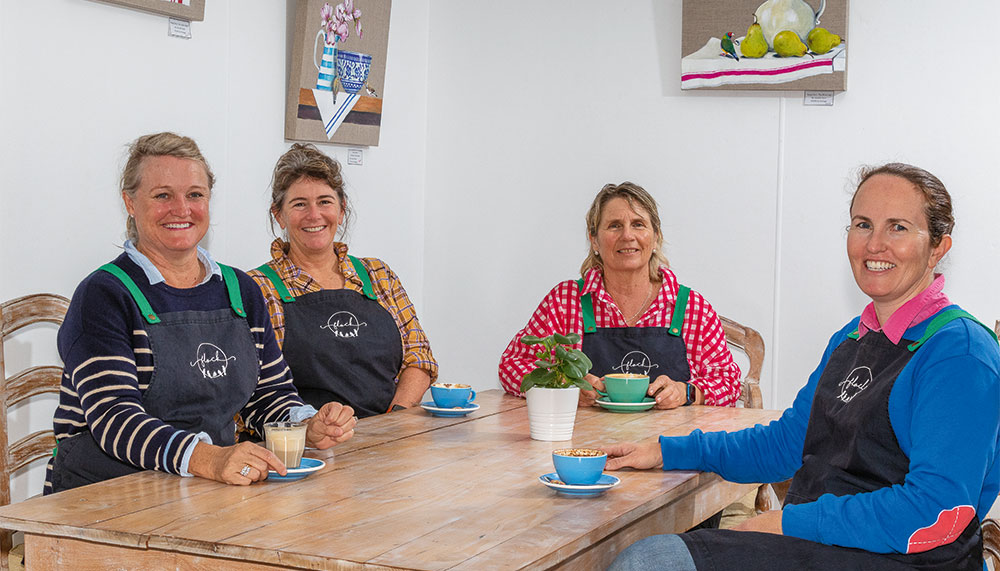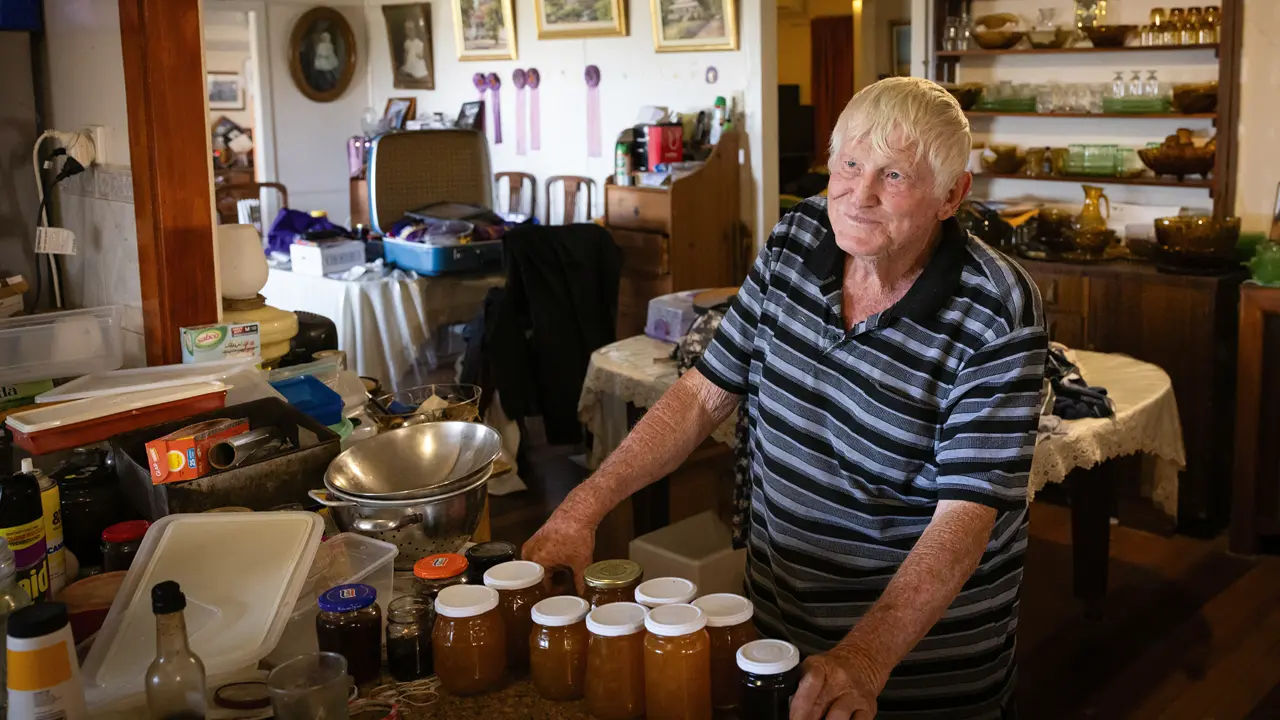A coffee shop run by local women is helping the Mungindi community recover from multiple disasters.
Story Kirsty McKenzie Photos Ken Brass
It’s raining cats and dogs in Mungindi and, while that would usually be a good thing in the agricultural service town on the Queensland/NSW border, tomorrow was supposed to be the 150th annual race meeting. The tiny town has about 600 residents on the NSW side and 100 more on the Queensland side of the Barwon River and they’ve had a tough time of late, so they need something to celebrate. Naturally enough, conversation at the Flock Cafe is focused on whether or not the races will go ahead. (The committee ended up opting for a ‘phantom’ meeting – pretty much the same event, minus the horses.)
Five local women banded together in 2020 to buy the cafe building, which began life as a temporary ambulance station and served as a pottery shed before becoming a coffee shop. Emily Harris, Anna Harrison, Annette Heagney, Lou Doran and Sally Houston were all fully employed either on farm or in town and with families to look after when they heard that the shop was for sale. The decision to buy it came over a few drinks.
“We basically decided that the town couldn’t take another hit,” says Annette, who lives on South Bunarba, a broadacre cropping and cotton farm. “The district had been in drought forever and then COVID hit, and that was really difficult as the border was shut and the town basically cut in two. The chemist is on the NSW side, but the hospital is in Queensland, so the past two years have been challenging, to put it mildly.”
In December 2021 and again in March of this year Mungindi was cut off by floods, and the region has also had to contend with grasshopper and mouse plagues. But the biggest setback occurred in September 2020, when a fire tore the heart out of the main street, with the butcher shop, convenience store, and gift and homewares shop all destroyed. “Within two weeks our progress association had set up a pop-up convenience store in the old RSL building and a volunteer committee ran that for 18 months,” Annette says. “Now the new owner is going to rebuild, but the butcher shop won’t and we’re still unsure about the gift shop. It’s been devastating for the town as it felt as though we’d lost so much community interaction. We decided to take over the coffee shop to give people a sense of rebuilding.”
This story excerpt is from Issue #145
Outback Magazine: October/November 2022









